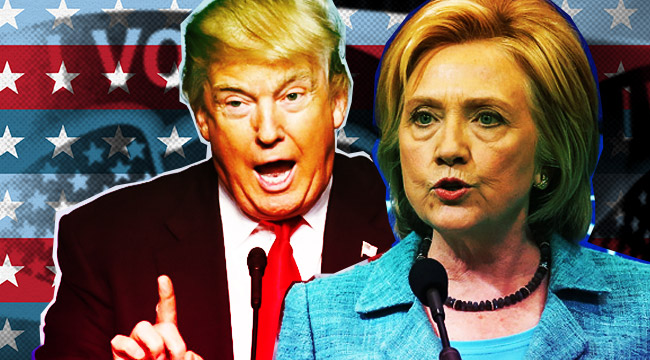
Every four years, people fume that clearly their candidate only lost because the whole thing was rigged. In fact, recently even prominent candidates have taken to insisting this. But how true is it? How possible is it to rig an election? It turns out our voting system is more secure than you think.
Let’s start with the fantasy scenario, which is that somehow, some way, a shadowy conspiracy manages to literally change votes or manipulate the system somehow to elect the candidate of this conspiracy’s choosing. It makes for great TV, but it makes no sense.
First, Presidential elections involve millions of people and are likely the most closely monitored and analyzed by private individuals and companies on the planet. In a discussion of the 2012 Iranian elections, which serve as an overview of election fraud, New Yorker journalist Laura Secor notes there’s no effective way to poll Iranians and get a true sense of the sentiment of the people, and there’s excellent reason for that.
To rig an election in this sense, you wouldn’t just need to steal votes on Election Day; you’d have to make sure to rig every poll in every state to show your result was legitimate, too. And not only would you have to do this, you’d have to do it in a way that passes mathematical sniff tests. For example, a study claiming that people were more friendly towards the concept of gay marriage when a gay person went door to door to talk about it was quickly taken apart by two grad students who tugged at one thread in the data and watched the whole thing unravel. In fact, even when we know an election is illegitimate, it’s pretty easy to sort out an election that was rigged from an election that was just deliberately poorly run.
So for this scenario to work, every poll, from the ones conducted by universities to the ones run by news networks, would have to be in on the scam. Secondly, federal elections are handled on a state by state basis, that’s another layer to what’s already the grandest conspiracy in human history. Don’t forget, to be effective you’ll also need Congress and the Senate behind you, so you’ve got to fake those polls and rig those votes too. And if our theoretical supervillain got all these resources … why even bother in the first place? Why not just be the silent partner of somebody more likely to win legitimately? Hell, why would this person want a job with an eight-year time limit, when they’re already this powerful?
This isn’t to say that you can’t rig an election. You can, and in fact, America has a long, ugly history of doing just that. But it’s not the way that “rigged elections” are often presented.
How Elections Are Really ‘Rigged’
The most direct way to influence an election is to manipulate the vote. Probably the most notorious example of this in the Developed World is Shirley Porter’s attempt to quite literally change the electorate of the English town of Westminster in the 1980s. Porter’s scheme was to, quite literally, give voters friendly to her and her colleagues homes in the city she was in to vote for her. It’s not quite the “Spendthrift Election” from England’s past, where three nobles spent the modern equivalent of millions to buy votes, but it was certainly an audacious plan.
Another often-used way is outright lying, such as false flyers distributed in Texas during the 2010 elections attempting to mislead voters about the location of their polling place and the times they could vote. Municipalities in Georgia have been accused of sending police officers to intimidate voters. In 2011, Canada’s Conservative Party topped them all when it was accused of paying for misleading robocalls.
There’s also an argument to be made, as the Daily Show did recently, that the hilariously ridiculous gerrymandering of Congressional districts is a form of election-rigging.
The most common method, though, is to simply deny certain groups the right to vote. This is, by far, the most common way an election can be rigged in America. Women have only been able to vote in American elections since 1920, and black voters are still being denied their rights. North Carolina’s voter ID laws, one among a wave of states seeing such laws struck down by the courts, were found to have been based on research into the voting habits of black voters, and the laws designed to make it harder for them to vote.
Bottom line: America should have free and fair elections and, with very few exceptions, we do. That said, it’s much more likely for a local election to be “rigged.” It’s much harder for a statewide election to be so. And it’s virtually impossible for a national election to be rigged.
